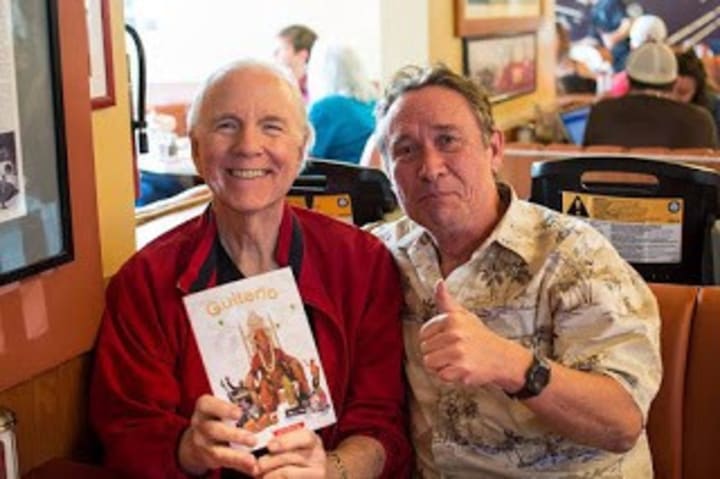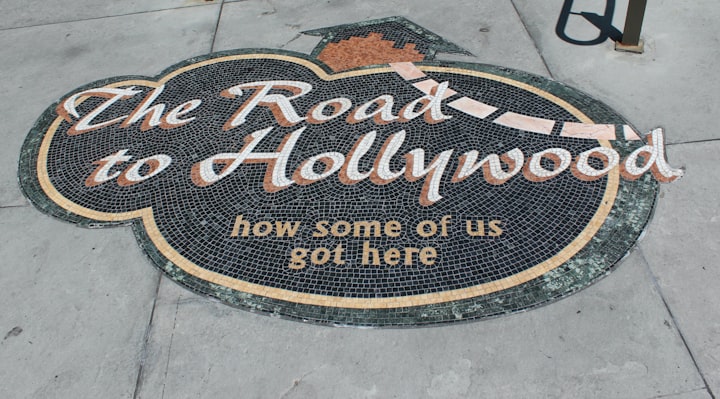The Man Who Wrote the Song "That's Life"
Frank Sinatra
My inspiration was to discover songwriters.
Tin Pan Alley is the name given to a collection of New York City music publishers and songwriters who dominated the popular music of the United States in the late 19th century and early 20th century. This story is about a group of songwriters from Minneapolis who tried to create their Tin Pan Alley.
The year was 1989 and I lived in Minneapolis in the same apartment on west 25th Street for 10 years. The neighborhood was nicknamed "the Wedge" because of its shape.
The idea was to create a songwriting/demo lab versus a full-blown recording studio.
It took me the better part of a year to come up with the $3,000 from my short-order cook job. To buy a used eight-track reel to reel. Three signal processors. Reverb, echo, 16-band parametric EQ, cords, and a patch bay. The 16 channel mixer cost $15,000 and that took getting a lease to pay for it. All a hit song requires is a piano or guitar and a piece of paper but let's not go there.
My mission was to lend a hand to artists. Provide opportunities for other artists to carve their musical niche. Preserve fine expressions of the spirit calling unto itself.
Networking was strong back in those days. Not long before the little apartment studio called "Thump" buzzed with songwriters. My friends produced hundreds of demo recordings.
I came to believe that six artists had national potential. I selected their best songs and decided to try selling them. They were pop songs. I hadn't a clue about how to do that. By magic, it seemed, an artist would get a music executive to listen to their recording or come to their show? The exec impressed and make an offer on the spot? The Wedge was a cool place to be a musician but it wasn't New York's Tin Pan Alley.
To begin my mission, I purchased a directory of Los Angeles record company talent scouts.
On my first visit to Hollywood, courtesy of my dad's car and home, I found myself lost on the L.A. freeways. I was a solitary, unknown voice in the slot machine of the entertainment industry. More happened in a single Hollywood hour than 10 years in Minneapolis.
What would I say to the record labels? I devised a script and rebuttals as I had learned in sales school. My first hurdle was selling myself past the executive's assistant's desk. Then, the music had to sell itself.
I spent most of my day's cold calling. Knocking on doors, waiting in reception areas, and chilling in a trendy coffee shop on Rodeo Drive.
Being unknown had one distinct advantage - I hadn't acquired a bad reputation. Through trial and error-after many rejections. I learned how to drop names, sometimes managing to get an appointment.
I was finally able to get my foot in the door with Dean Kay, who was a major music company president. Did I mention name-dropping? I told him a little white lie that I knew Prince. I didn't know Prince, exactly. My wife's cousin was in his side band and that was close enough.
Dean's office was the largest I had seen. It could have passed for a condominium. The most prominent fixture on his desk was not his pair of feet, but a photo of his wife and daughter. I estimated him to be in his late 50s. He had a genuine persona about him that came across in his wide smile. Handshake, professional causal dress, short, white hair, and basketball-star height.
He didn't waste any time and started to play my cassettes. The more cassettes Dean popped into his stereo. The more his mood shifted from hurried to tell his secretary to hold his calls.
"Your songs sound like finished records," Dean said, impressed, "Where are you from again?"
"Minneapolis," I answered. "It's the hometown of Prince and 10,000 other bands. The reason they're so many great songwriters there is because it's so cold you can't go outside half the year. So people get creative and write a lot of songs."
He stopped the cassette player.
"You don't say?" Dean remarked. A big shiny white smile reflected off his glowing California-tanned features.
"In the winter, I have to light a pan of charcoal and place it beneath the car's engine block or it won't start. When I turn the ignition the motor often grumbles 'not today,'" I said, talking Minnesotan.
"Is it cold there now?" Dean looked worried.
"No, because it's June," I replied, "and the beginning of the summer season. There are only a couple of months left before it's time to break out the parkas."
"What are you looking for?" Dean examined a cassette.
"I would like to sign my songwriters to your company so I can share their music with the world," I explained.
"How many songwriters do you represent?" Dean probed.
"I am currently working with six songwriters," I told him with growing confidence in my tone.
Dean nodded his head and picked up his phone, "Change my next flight to New York for a stopover in Minneapolis." Standing to shake my hand again, he added with reassurance in his tone, "We'll see what happens, okay?"
Dean co-wrote the song "That's Life," with Kelly Gordon. The most famous recorded version sang by Frank Sinatra, released on his 1966 album of the same name. Both album and song confirmed profitable triumph for Sinatra.
Dean Kay was a songwriter, performer, and recording artist, as well as a suit. Throughout his career. He nurtured the careers of many other songwriters. Recording artists, and music industry executives. He purchased more than 100 music-publishing catalogs involving more than 100,000 copyrights.
After several months of negotiations and expensive lawyers. PolyGram Music International signed my company in 1989. I had finally "arrived" in the world of music executives, and now I got to ride around, for a while, in style.
"Dean scolded me, "Please. Close the door with one finger. Try it again. There, Ferrari doors are as light as a feather. Everyone wants to treat my car like a truck."
Pinch me. I was riding with the millionaire president of one of the largest music publishers in the world. I hid my wide eyes behind a pair of sunglasses. Past the TV and movie production companies that lined Olive Street in Burbank. Limousines cluttered the lanes of traffic. Paramount was filming the next blockbuster.
"They all need good songs," Dean said, as he waved his hand across the sleek dashboard. "I like that project you're doing with Laura," he continued. "I would like to hear more. You got a winner there."
I was walking in an imaginary spotlight.
"You're part of the Polydent family now," Dean exclaimed, with his big white smile. Why he compared PolyGram to a dentures cleaner was an inside joke, yet for me to understand.
More like PolyGlam, because the music contract honeymoon myth was true. I was being wined and dined by top music biz shakers in ivory towers. Decorated by gold and platinum record awards. How deluded I was to think that my name might someday hang on the wall of moguls? Not everyone cared.
Hollyweird had a meat-wagon mentality. Either on your way up or on your way out in this trendy, back-stabbing, flavor-of-the-month club. Despite the headaches of trying to win in this game. I had finally realized my dream of working in the music business. I was for the first in harmony with what I loved to do.
I rented an office suite in Minneapolis that belonged to Owen Husney. The former manager for Prince. During my time as co-publisher. And A&R rep (Artist and Repertoire aka arguments and recriminations). I placed several artists on major labels. Helped save the independent label Twin Tone Records from bankruptcy. A band like The Jayhawks. Replacements. Suburbs. Soul Asylum, and Ween-by finding a new national distribution deal on Restless Records.
I was feeling so much like part of the PolyDent family. I expected we'd all share a dysfunctional Thanksgiving dinner. Then I got a call from the Dean's office.
"I have had enough of your partner's shenanigans," Dean told me. Sounding very irritated, "Telling the president of Island Records that he's an idiot is the last straw. I'm sorry, but I have no choice other than to end your contract."
My contract ended in 1992.
The songwriters looked more like a reality TV show drama than tomorrow's hitmakers.
They who so wanted a break took off in default of their contracts.
One headed to L.A., to follow her own Hollywood dream to find a husband? One got into drugs and joined a motorbike club. Another, whose demo tape I gave to a record company, snagged a recording contract, forgot who I was. One songwriter joined Paula Abdul. Janet Jackson, and became Cher's music director made sure his number got lost. Another one moved in the night, Signed to a major label owed his music publishing to me. My partner confessed that he robbed me.
Don't believe your business associates are your friends.
So it went. I wanted to see "my" artists succeed. But had hoped they'd at least acknowledge the guy who helped launch their musical careers and dreams. Flabbergasted to realize many could not seem to find the space to credit me in their liner notes.
Dean Kay, President, PolyGram, Dave Barry, Laura Schlieske, Marty Weintraub, Marko Dardanis,
Arlo Hennings, Gina Felicetta, Bob Kirsch, VP PolyGram, Nashville (left to right) - (photo owned by Author)What happened to me was par for the course. The crazy, upside-down, unpredictable music business. "Making it" was more 2/3 luck and 1/3 hard work.
Dean Kay later lost his job, as well, due to a merger among PolyGram, Island, A&M Records, and Motown. He maintained his position as being on the Board of Directors for ASAP. He kept his own publishing company.
The lyrics to "That's Life" would fit the ending of this story better than anything. I didn't want to pay the license fee to use the words.
I hope your next song is a hit.

About the Creator
Arlo Hennings
Author 2 non-fiction books, music publisher, expat, father, cultural ambassador, PhD, MFA (Creative Writing), B.A.







Comments
There are no comments for this story
Be the first to respond and start the conversation.